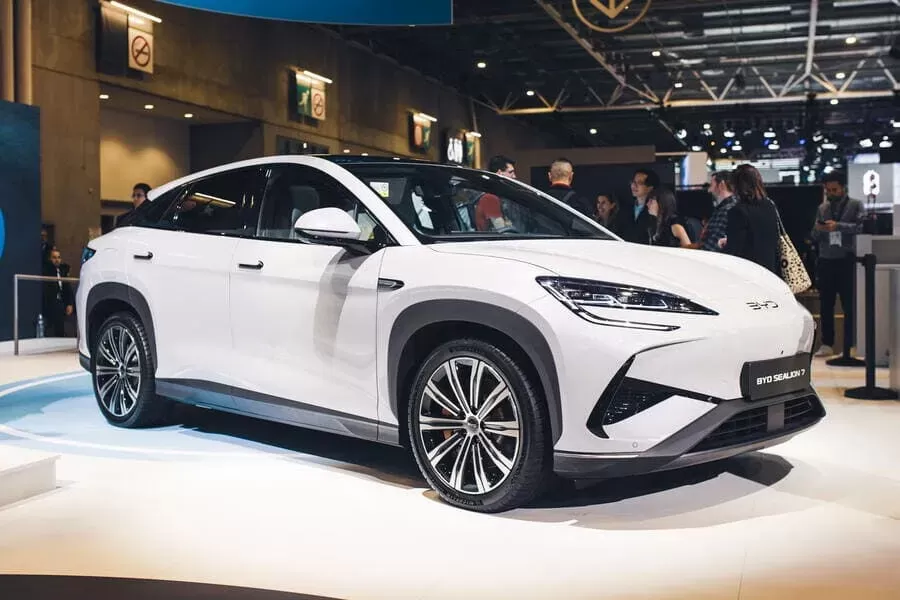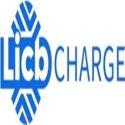Notifications

5 minutes, 58 seconds
-70 Views 0 Comments 0 Likes 0 Reviews

As a leading EV charger manufacturer in China, LiCB Charge delivers reliable AC and DC electric vehicle charging stations along with comprehensive charging solutions tailored to diverse needs.
At this year's Paris Motor Show, two key trends are emerging: first, Chinese automakers are making a significant impact, representing nearly half of the exhibition; second, traditional European brands are increasingly turning their attention to the low-cost vehicle market. Companies like Renault, Citroën, Volkswagen, and BMW, which were once focused on premium models, are now focusing on affordable vehicles to remain competitive. This shift in strategy raises important questions about the reasons behind it.
To understand why European automakers are pivoting towards low-cost vehicles, we must first look at the state of the European electric vehicle (EV) market. While EV adoption is rising globally, the high price of electric vehicles remains a significant barrier to wider acceptance in Europe. The average price of EVs in the region is around €45,000, making them too expensive for many potential buyers. On top of that, rising energy costs, driven by geopolitical tensions, and increasing competition from Chinese brands are further limiting the growth of high-priced EVs.
Analysts predict that the low-cost vehicle market will grow at a compound annual growth rate (CAGR) of 5.5%, with its global market size expected to reach $1.2 trillion by 2025. This presents a compelling opportunity for manufacturers to tap into a larger consumer base.
Renault CEO Luca de Meo highlighted at the motor show that the lack of EV charging infrastructure and volatile prices are key challenges in Europe. In response, companies like Renault are working to reduce vehicle costs and make EVs more accessible. At the show, Renault introduced affordable models like the R4, R5, and the entry-level Dacia Bigster, with prices starting at least €10,000 below the average EV price in Europe. Citroën also unveiled an entry-level version of the C3 compact electric car priced under €20,000, while Volkswagen introduced the Elroq plug-in hybrid SUV priced at €33,000 and plans to launch the ID.2all small car for under €25,000. BMW showcased affordable MINI electric models, developed in China in collaboration with Great Wall Motors, further demonstrating their focus on competitive pricing.
As competition intensifies in the global automotive market, many brands are focusing on the low-cost car sector, which offers significant growth potential due to its large consumer base. This trend is particularly noticeable in Europe, where over 100 new electric vehicle models are expected to be launched this year alone. Chinese automakers, in particular, are making a strong push in this market.
Brands like BYD and Xpeng are capitalizing on their supply chain strengths, enabling them to produce high-quality electric vehicles at more competitive prices. This has led to growing market share for Chinese-made electric cars in Europe. For instance, BYD displayed several electric and plug-in hybrid models at the Paris Motor Show, including the Yangwang U8, a high-end model combining advanced technology and competitive pricing. Xpeng also launched the P7+ sedan, priced at approximately €30,000, directly competing with mid-sized luxury vehicles from BMW and Mercedes.
To overcome challenges such as high tariffs, Chinese automakers are forming partnerships with local manufacturers and establishing production plants in Europe. BYD, for example, is not only manufacturing vehicles in Europe but also setting up electric vehicle battery recycling facilities in Hungary, which helps reduce production costs and meets local demand. This localization strategy allows Chinese brands to better address consumer needs and mitigate the impact of tariffs, all while maintaining a competitive edge in pricing.
The shift by traditional European brands towards low-cost EVs reflects the changing dynamics of the European automotive market. With high EV prices being a barrier for many consumers, and competition from cost-efficient Chinese automakers on the rise, European brands are adjusting their strategies to focus on affordable models. By doing so, they aim to capture a larger share of the growing EV market, making electric vehicles more accessible and competitive. As Chinese brands continue to gain ground with their cost-effective and high-quality offerings, the European market will likely see even more innovation and collaboration in the years to come.Know more about Google SEO Directory
China EV Chargers EV Charger Manufacturer Smart EV Chargers Electric Car Chargers Electric Vehicle Chargers Electric Car Charging Stations

